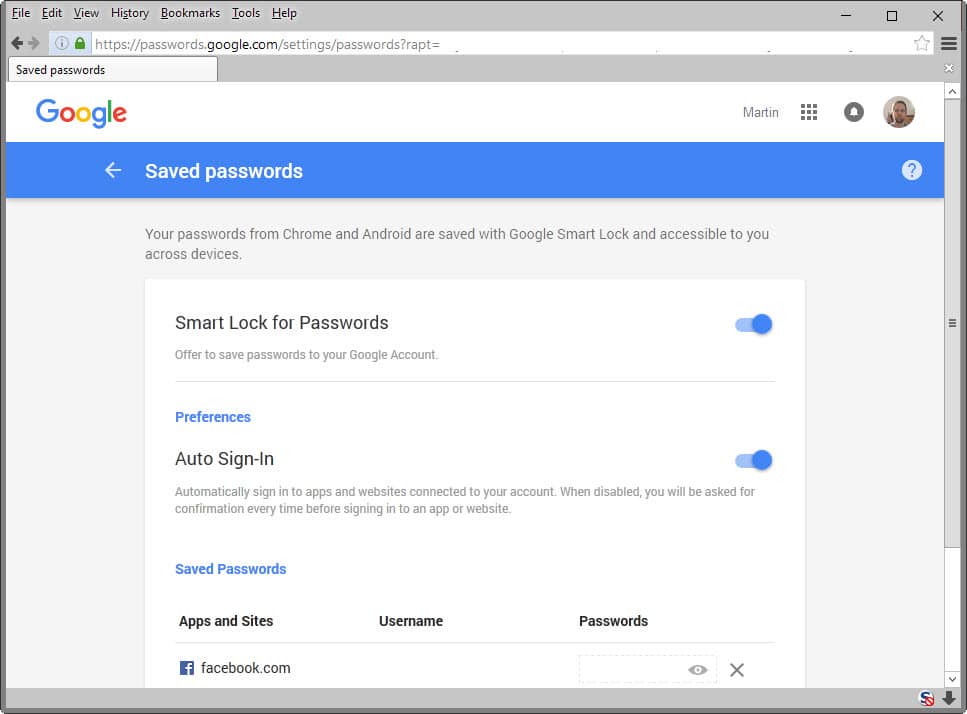
#Saved passwords on google Pc#
You can also make sure your PC locks automatically if a synced phone goes out of range through a Windows feature called Dynamic Lock: Go to Settings > Sign-in Options > Dynamic Lock.) (Go to Edge’s Settings > Advanced Settings > Manage passwords, then right-click a given site and click remove credential to erase these stored passwords. You can help lock down your PC by turning on Windows 10’s Dynamic Lock. Within seconds, the attacker could reveal your banking password, then close the tab and you’d be none the wiser.
#Saved passwords on google password#
In Windows’ Microsoft Edge browser, for example, the Edge password manager doesn’t reveal any of the stored passwords- but if you carelessly allowed Edge to store your Google password in its master list, an attacker could log into Google’s master password list with a single click, and without knowing any of your carefully memorized passwords.

Be aware that if you use more than one browser, your password might be stored like any other. The site asks for your Google password before divulging the master list. (Something like “HowN0w,Browncat?numnumtime!” is both memorable and complex.) Never save this password in a spreadsheet, or a sticky note, or in a saved email.

If you choose simply to memorize it, make sure it’s a lengthy passphrase with enough randomization inside it to fool bots and spies alike. It’s that master password that you’ll need to secure absolutely. (Consider eliminating some of these.) To access them, you’ll first need to type in your Google account password. Fortunately, all of your passwords should still be accessible via, where you can search for the site name and reveal each individual password, then type it in.ĭo so, though, and you’ll probably be amazed at the number of passwords you stored within Chrome for convenience’s sake. First, be aware that if you store a randomized password for a site like Netflix within Chrome, you’ll still have to enter that password if you access Netflix within an app or on a streaming device that doesn’t use Chrome as an interface. The more keys you store in Chrome’s lockbox, though, the more you’ll want to ensure that Chrome itself is totally secure.
:max_bytes(150000):strip_icc()/001-how-to-change-your-password-on-chromebook-1454539f1932427781ce3c81e932c49a.jpg)
(It’s not clear whether Chrome will automatically generate passwords that are compliant with a site’s rules-think the “XX minimum characters, one number, one special character” rules that you’ll find on some sites-though the passwords I generated on a test site conformed.) Be sure Chrome isn’t the weak link Naturally, this makes it extremely easy for Chrome users to generate “secure” passwords for each new site, because the password Chrome creates is essentially just a mishmash of numbers and letters.


 0 kommentar(er)
0 kommentar(er)
